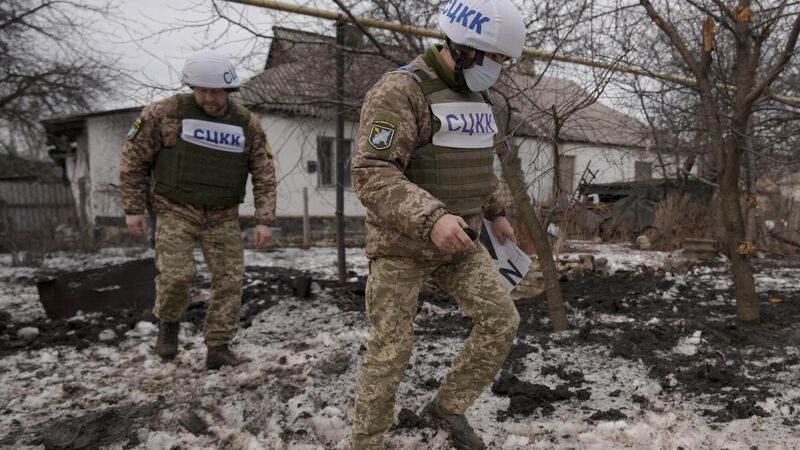Russia threat 'most dangerous' of our lives as war on Ukraine looms

Members of the Joint Centre for Control and Coordination survey a crater and damage to a house from one of at least eight artillery shells that landed in the village of Vrubivka in eastern Ukraine on Thursday. Picture: Vadim Ghirda/AP
The Russia-Ukraine crisis is “the most dangerous moment” for the order of European security in our lifetime, the British ambassador to Ireland has said.
Spiking tensions in eastern Ukraine have heightened Western fears of a Russian invasion prompting a new war on the edge of Europe, with a humanitarian convoy hit by shelling yesterday and pro-Russian rebels ordering the evacuation of civilians from the breakaway regions of Donetsk and Luhansk.













